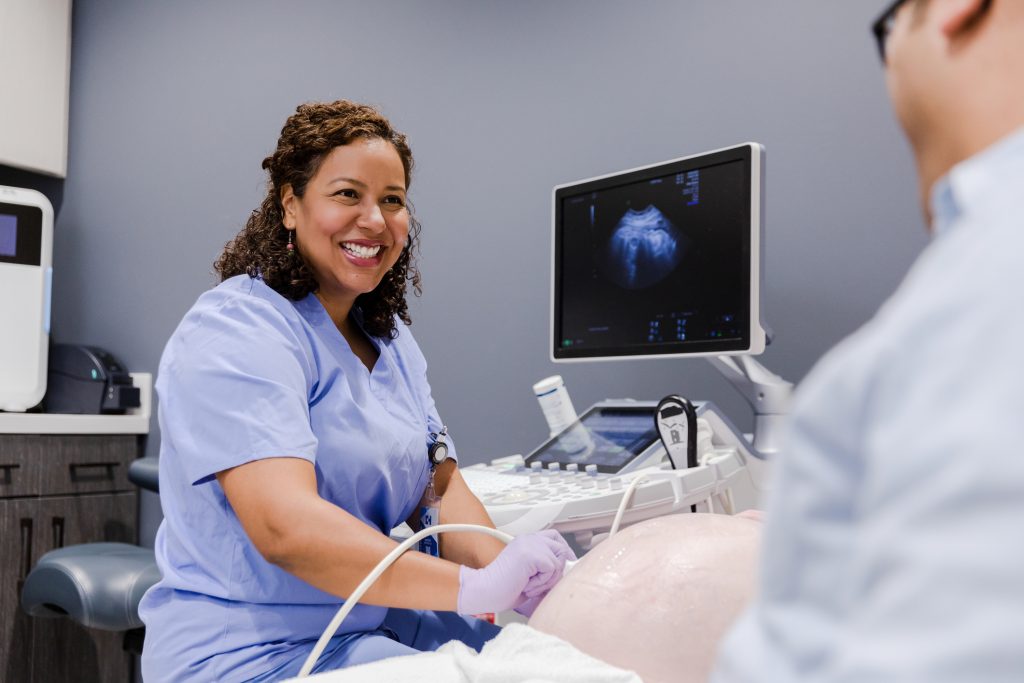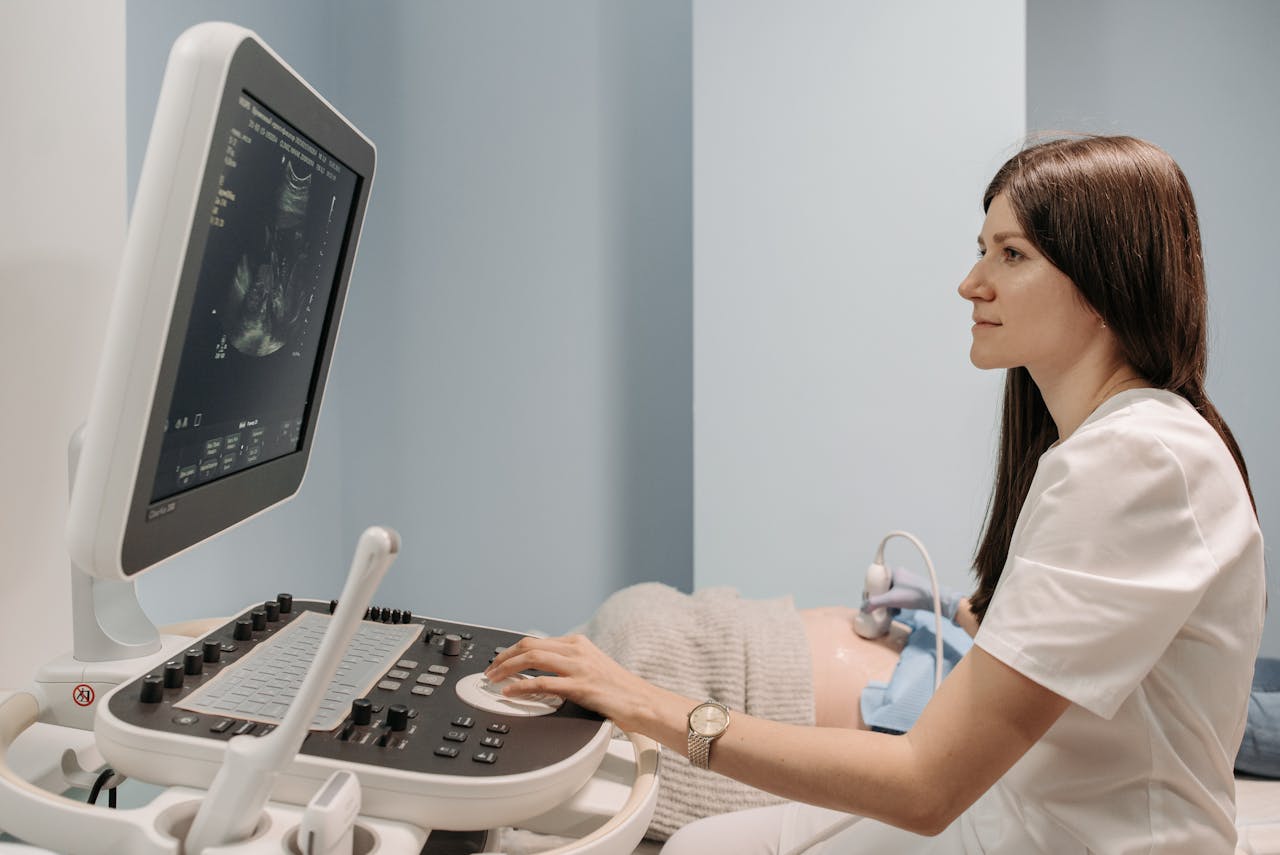Top 7 Skills You’ll Learn in Diagnostic Medical Sonography Programs
Published - July 15, 2025


Picture a job where your expertise helps uncover hidden health issues and guides life-saving care decisions. That’s the world of diagnostic medical sonography—a mix of cutting-edge technology and human connection. It’s where science meets compassion.
Maybe you’re Googling “diagnostic medical sonography programs near me,” or perhaps you’re just testing the waters to see if this career calls your name. Either way, diving into the core skills these programs teach can brighten your path forward. From mastering high-tech imaging tools to deciphering the human body’s intricate “language,” these programs set you up for a fast-paced, fulfilling healthcare career.
Let’s break down what you’ll learn and how those skills make a difference every day in medical imaging.
Unlocking the Language of Anatomy and Physiology
Understanding human anatomy isn’t just a class—it’s the bedrock of a sonographer’s work. You’ll learn to pinpoint organs, tissues, and irregularities with precision, which often means the difference between a quick recovery and prolonged health complications. For example, if you’re performing an abdominal ultrasound, identifying whether the issue is gallstones or a bile duct obstruction could completely change a patient’s treatment plan. Pretty impactful, right?
Sonography programs guide you through extensive coursework that dives into cardiovascular, endocrine, and musculoskeletal systems. You’ll also learn how these systems interconnect, helping you interpret those challenging sonographic images with confidence.
Imagine working as a prenatal sonographer. Recognizing fetal growth patterns and maternal structures is crucial when you’re looking for possible congenital conditions or risks of preterm labor. Your expertise doesn’t just stop with images; it can bring peace of mind to families and even prompt early interventions that save lives.
Hands-On Mastery of Imaging Equipment
Getting the perfect diagnostic image isn’t just about aiming the machine at the right angle; it’s an art and a science. Sonography programs immerse you in the nuts and bolts of operating advanced ultrasound equipment. You’ll know how to tweak all the settings—think gain, resolution, or Doppler adjustments—to ensure every image you take is crystal-clear. In heart scans, for instance, those fine-tuned adjustments make it easier to spot potentially life-threatening problems like valve abnormalities.
But it doesn’t stop there. You’ll also learn how to troubleshoot the equipment when things go sideways mid-scan because let’s face it, technology isn’t always our best friend. With rapidly advancing innovations like 3D and 4D imaging becoming the norm, sharpening these practical skills keeps you ahead of the curve.
The Art of Reading Images
Snapping high-quality images is only half the work. Being able to analyze what you’re seeing is what makes you indispensable. Diagnostic sonography programs hone your ability to interpret everything from normal tissue to anomalies like masses, fluid build-ups, or irregular structures.
Take a pregnancy ultrasound, for example. If you notice signs of placenta previa—a condition where the placenta blocks the birth canal—your diagnosis could shape the entire course of someone’s care. Your sharp eyes ensure such issues aren’t overlooked, leading to quicker treatments and better outcomes for patients.
By mastering both the capturing and the interpretation of sonographic images, you become a double threat—well-prepared to take on the healthcare world.
Connecting With Patients on a Human Level
Let’s face it: medical procedures can feel intimidating. That’s where your communication skills come in. Programs train you how to talk patients through potentially stressful exams while building trust and providing reassurance.
Imagine helping a nervous mom-to-be through her very first ultrasound. Your calm explanations not only ease her fears but also make the entire experience more special and memorable. Likewise, sonographers often work with diverse groups—from pediatric patients to seniors—so understanding how to adapt your communication style to fit different needs is key.
Cultural competence also plays a big role. Being sensitive to language barriers or cultural preferences ensures every patient feels heard and respected. This isn’t just good practice; it’s heartful, equitable care.
Ready for Anything
Few jobs require such adaptability as diagnostic medical sonography. You might spend your morning scanning patients in an outpatient clinic and your late afternoon rushing through an emergency room, checking for hidden injuries in trauma cases. The ability to work dynamically in different environments is essential.
Programs prepare you for these realities with simulated clinical scenarios, teaching you how to deliver under pressure while maintaining accuracy. Your adaptability also gives you the edge to branch out into various specialties like vascular, abdominal, or musculoskeletal imaging.
Details Matter More Than You Think
In diagnostic imaging, precision is everything. Whether you’re measuring heart valve functions in an echocardiogram or documenting findings after spotting a tumor, your attention to detail can genuinely change lives.
These programs drill the importance of precision into your routine, teaching you how to record accurate, actionable findings. You’ll also practice creating clear, concise reports to share with the larger medical team, ensuring patients get expertly informed care.
A Career Worth Growing Into
Sonography isn’t a field where you’ll stay stagnant—it’s always evolving. Programs introduce you to professional organizations like the American Registry for Diagnostic Medical Sonography (ARDMS), encouraging you to pick up specialized certifications in areas that excite you most.
Fancy helping kids? Look into pediatric imaging. Love technology? Dive into vascular sonography. As advancements like artificial intelligence make their way into this space, fresh opportunities keep cropping up, ensuring your skills remain in demand for years to come.
Crafting a Future That Matters
At its core, diagnostic medical sonography balances science, technology, and empathy. Programs train you not just to produce high-quality diagnostic images, but also to connect with patients during their most vulnerable moments. You become someone they trust—a steady, skilled hand in their journey toward better health.
As imaging innovations continue to reshape healthcare, the role of sonographers becomes even more essential. Finding an accredited program can put you at the forefront of these advancements—and set you on a career path where your work has a profound impact on real lives.
Ready to make a difference? Explore diagnostic medical sonography programs in your area and start your journey toward a career full of purpose and possibilities. You’ll gain skills that uncover answers, guide treatment plans, and make a lasting impact on every patient you touch.
